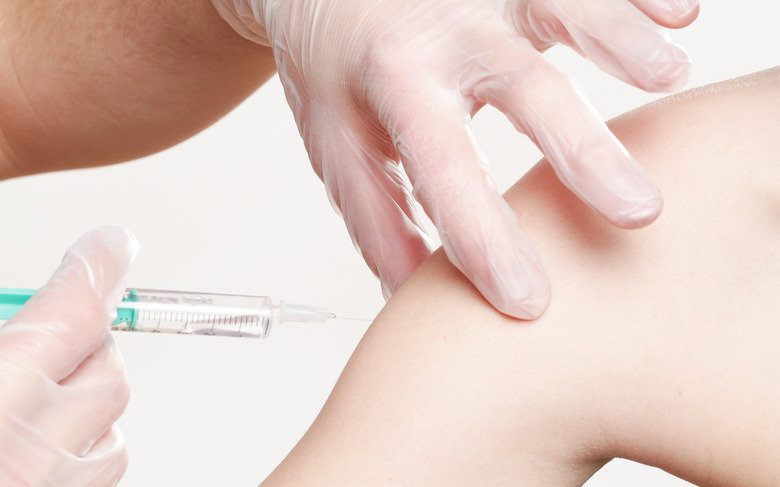Moderna's COVID-19 Vaccine Applies For FDA Authorization - What That Means
Pharmaceutical company Moderna will request Emergency Use Authorization from the US FDA for its COVID-19 vaccine today, the next big hurdle in getting doses of the drug out of trials and into public use. Moderna announced primary results from its Phase 3 study of mRNA-1273 – which it developed as a potential vaccine candidate for the coronavirus – earlier in the month.
Now, it's giving its conclusions from the Phase 3 study. Of the 30,000 participants involved, 196 cases of COVID-19 were observed: 185 in the placebo group, and 11 in the mRNA-1273 group. Vaccine efficacy against COVID-19 in general, then, was 94.1-percent.
Thirty of the overall COVID-19 cases were considered severe, Moderna said, all of which were in the placebo group. The vaccine's efficacy against severe COVID-19 cases was 100-percent, therefore. There was one COVID-19-related death, of a person from the placebo group.
"A continuous review of safety data is ongoing and no new serious safety concerns have been identified," Moderna said today. "Based on prior analysis, the most common solicited adverse reactions included injection site pain, fatigue, myalgia, arthralgia, headache, and erythema/redness at the injection site. Solicited adverse reactions increased in frequency and severity in the mRNA-1273 group after the second dose."

While submitting the data from Moderna's study to a peer-reviewed publication is still on the cards, the pharma company isn't holding off on requesting a US FDA EUA. That's the mechanism by which drugs, treatments, and medical devices can be fast-tracked into authorized use for cases of COVID-19, without necessarily going through the same lengthy approvals process that the FDA would typically demand.
Still, recognizing that vaccinations can be a divisive topic, the FDA has previously set out its requirements for any such drug seeking out an EUA for public use. That includes not only an efficacy milestone – which these Phase 3 trial results indicate Moderna's drug easily achieves – but criteria around different age groups and demographics. Assuming the EUA is granted, Moderna says that it expects to have approximately 20 million doses of mRNA-1273 ready for use in the US by the end of 2020.
With the aid of international partners, meanwhile, it could potentially have 500 million to 1 billion doses available globally in 2021. One notable advantage compared to Pfizer's rival vaccine candidate is that Moderna's drug has more typical transportation demands for temperature control and storage. That, the company says, should mean distribution "can be done using existing infrastructure."
Of course, while 20 million doses before the end of the year is a considerable number, and Moderna's vaccine candidate is unlikely to be the only option since Pfizer, the University of Oxford, and others are also working on similar drugs, that still falls significantly short of the total number of people who need to be vaccinated. Some estimates have predicted that it won't be until Summer 2021 before the general public can be vaccinated en-masse, earlier doses being prioritized for first responders, essential workers, particularly at-risk groups, and similar.
